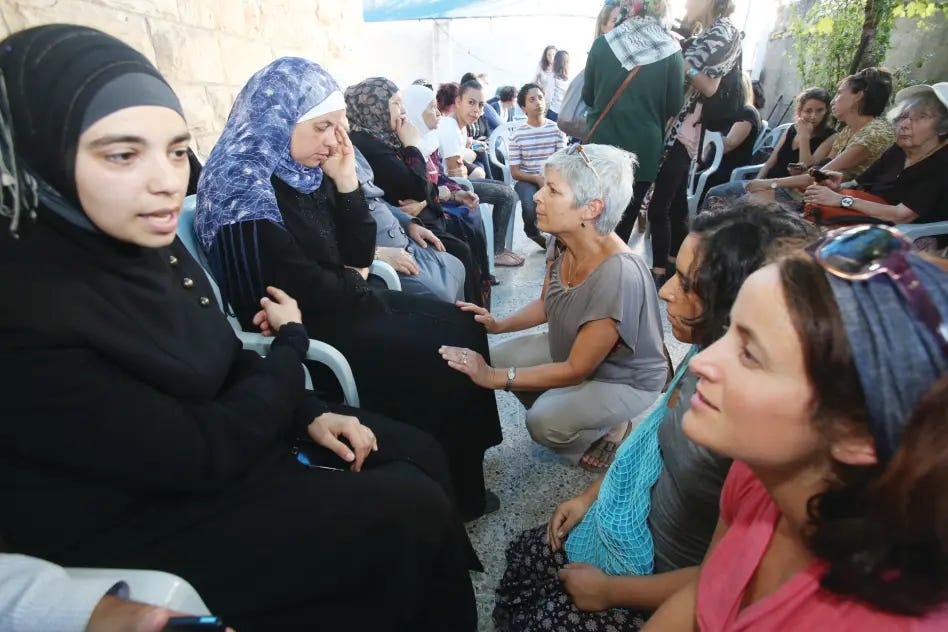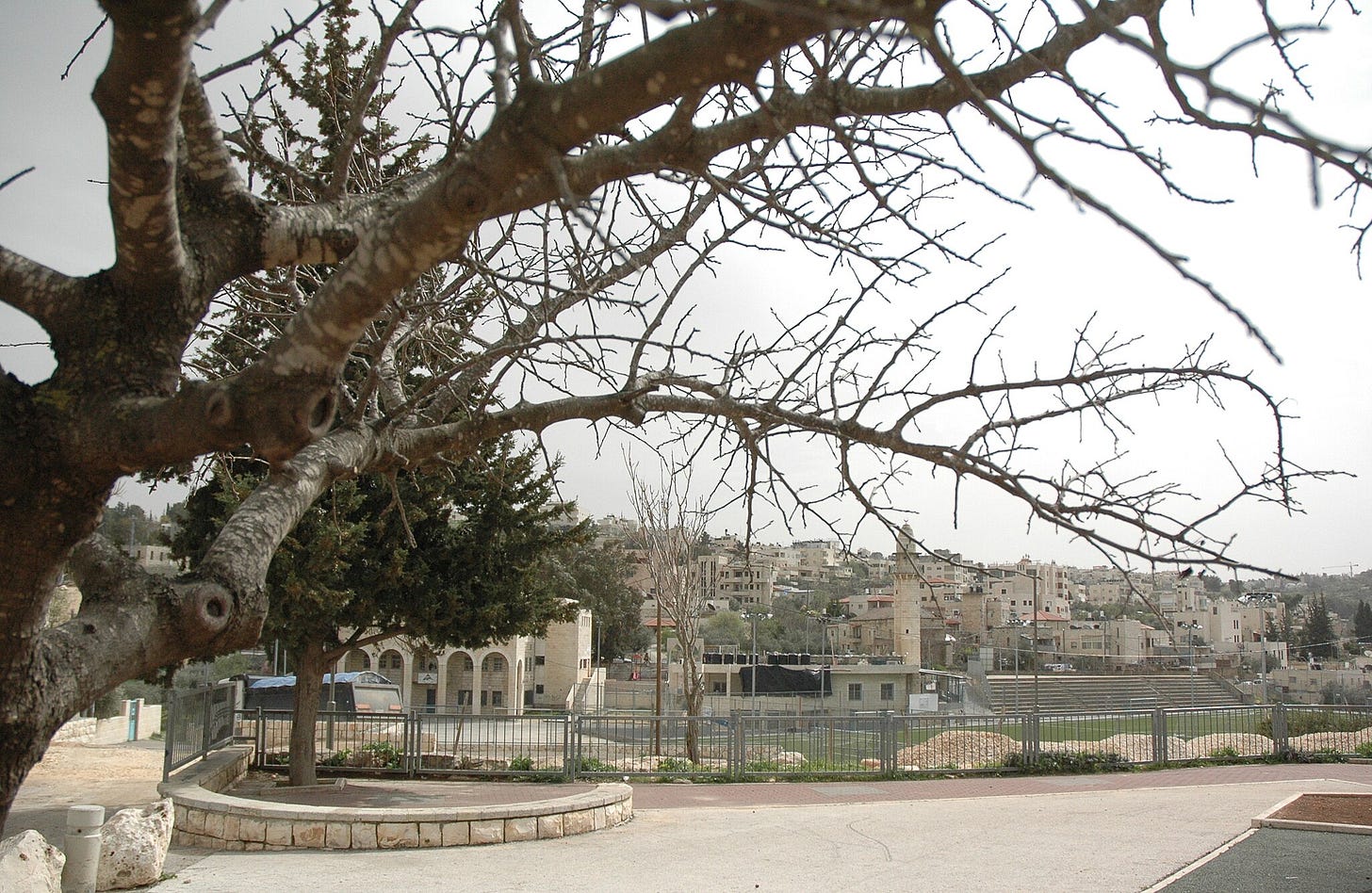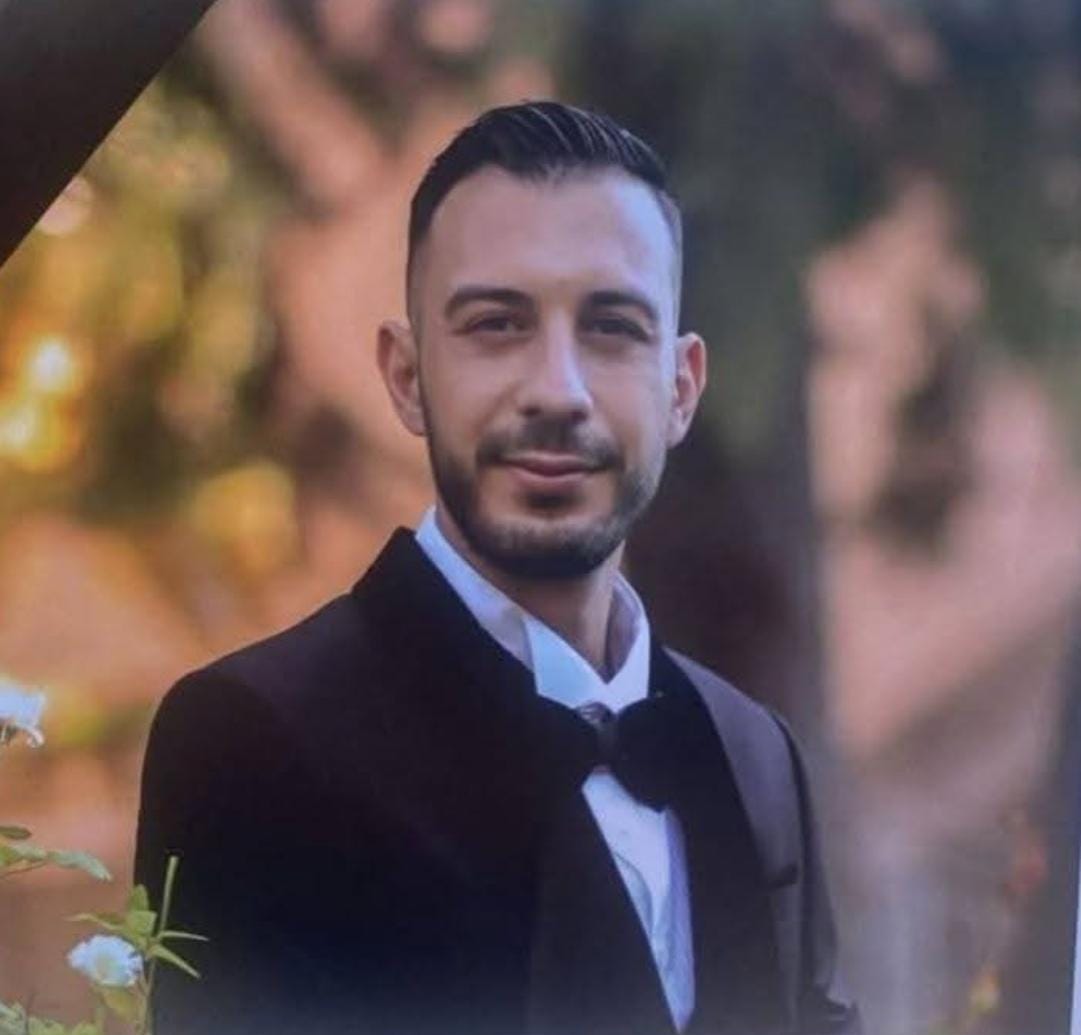'What if the situation had been reversed?'
That's the question every Israeli needs to ask themself when a Jew kills an Arab because he's in the wrong neighborhood, and the authorities dillydally in their response. What did they do in the end?
(As I write, and you read, Israel is engaged in another front in its war, this time against Iran. If I feel I have something original to say about that in the next few days, I will share it here — subscribe to make sure you see it. In the meantime, a story you may not have heard about, but one that, besides its inherent tragic nature, also offers a warning about the ugly and dangerous seams of racist nationalism flowing beneath the surface of Jewish society here, and the fears caused by having an ambivalent system of law enforcement charged with responding to them.)
“We can ask: What if the situation had been reversed, and the victim had been Jewish, and the person who ran him over was an Arab,” said Gadi Gvaryahu. “You don’t need an advanced degree or a wild imagination to know the answer: Everyone with a gun would have taken it and gone to [the Arab’s] neighborhood” to impose their idea of justice. “I doubt that the driver would have come out of it alive. And of course, his family’s house would have been demolished” by the authorities.
I was speaking with Gvaryahu, founder of the Tag Meir organization, about recent developments in the case of the May 22 death of Fouad Alayan. Alayan, a 31-year-old Arab from Jerusalem’s Beit Safafa neighborhood, died after being run over, allegedly intentionally, by a Jew. By all accounts, Alayan’s offense was being an Arab who made the mistake of sitting in the public park in San Simon, a principally Jewish neighborhood not far from Beit Safafa.
Gvaryahu’s organization is a loose coalition of some 50 human-rights groups whose members mobilize in response to hate crimes in Israel or the territories to provide comfort and assistance to the victims. (The name “Tag Meir” is a play on “Tag Mehir,” Hebrew for “price tag,” which is how some Jewish terrorists refer to their attacks on randomly chosen Arabs, following Palestinian terror attacks against Jews. “Meir” means, roughly, “spreading light.”)

The circumstances of the attack on Alayan, in terms of the unmitigated racism behind it, and the fact that it took place at a time when tensions between Jews and Arabs are so high, give it the potential to be a watershed event. Hence, concerned citizens have watched expectantly over the past three weeks to see how the wheels of justice would handle the case, and what message that might convey to a public whose political leaders have in large part lost their moral compass.
To give a sense of the context: Just four days after Fouad’s killing, on Jerusalem Day, which fell on May 26 this year, three 16-year-old Jewish boys celebrated the anniversary of Jerusalem’s reunification by setting fire to the home of, and beating, an Arab resident of the Muslim Quarter; two of them were indicted on charges of arson and assault last week. Three days after that, young fans of the Beitar Jerusalem soccer club, disappointed by their team’s loss in the State Cup finals to Hapoel Be’er Sheva, boarded a bus driven by an Arab man, and attacked him and another Arab who came to his aid. That was part of a growing trend of attacks on Arab bus drivers. The unprovoked assaults by young people are disturbing enough, but the largely apathetic response by political leaders and, to a lesser extent, law-enforcement authorities also sends a dangerous message to the public.
In the West Bank, it has long been clear, and doubly since the start of the war in 2023, that violence by Jews against Palestinians is not only rarely investigated or punished, but that it often is carried out with the tacit approval of both the security forces and the Israeli government. Has the rule of law been eroded to a similar extent in Jerusalem, fully one-third of whose population is Arab?
Two days before his death, Fouad Alayan, who worked in the IT department of Hadassah Hospital, and was married only two years ago, sat with his cousin Bara’a Alayan in San Simon Park. It was, said their uncle Ibrahim Alayan, “maybe the 100th time” they had gone to the park, where they enjoyed sharing a smoke and sometimes a cup of coffee from an adjacent café. This time, however, the two were approached by several Jewish men, including 24-year-old Eliyahu Shkalim, who had been using the park’s exercise machines. They informed the Arabs that were not welcome in the neighborhood and demanded that they leave the park. Eventually, the pair departed.
They returned, however, two nights later, when they again encountered the self-appointed guardians of Jewish San Simon. (The neighborhood has that name because of the 19th-century Greek Orthodox monastery in the same park, built, according to Christian tradition, on the site of the grave of the “righteous and devout” Simeon, who blesses the young Jesus in the Gospel of Luke 2.) Harsh words were exchanged, and there seems to have been a physical scuffle; according to one account, the Jewish men threw stones at Fouad and Bara’a. The two Arab men left the scene on Bara’a’s motorbike. This soon turned into a chase, with Shkalim pursuing the two in his car. When they tried to flee by running onto the sidewalk, he drove his car over the curb and followed them on the pavement, and when they returned to the road, he did the same, until he hit the motorbike, sending the two flying. After knocking them both down, Shkalim drove off, without offering any assistance to the wounded men.
Fuad, whose skull was fractured from the blow, died on the spot, and Bara, badly injured, was taken to Shaare Zedek hospital, where he underwent several operations for multiple fractures, and remained in intensive care for nearly three weeks, suffering from internal bleeding.
Later that night, Adi Stein, a resident of the neighborhood, saw a headline on Ynet about what was then being described as a fatal traffic accident. Her children attend the nearby Hand-in-Hand bilingual school, and while she says that she doesn’t know Fuad’s family personally, she is friendly with other members of the Alayan clan from the school.
The Alayans, she says, constitute one of the four hamulot (clans) that make up most of the population of Beit Safafa, a former Palestinian village on Jerusalem’s southern edge. After the cease-fire in the 1948 war, the village was left physically divided, with half of it in Israeli Jerusalem, and half under Jordanian control. It was reunited in 1967. Today, Beit Safafa is fully incorporated into the city, but the legal status of its residents is still dependent on whether their predecessors lived in the part of the neighborhood that was in Israel prior to the Six-Day War.

Stein, an attorney, says she immediately felt “that we had to organize to console the family” with condolence visits. As details of the event began to emerge, the group also organized a silent protest at the site the following Friday. Tag Meir soon joined the effort and, among other things, organized a group to visit Bara’a Alayan in the hospital.
All initial indications were that the police intended to treat the event as an accident or at worst as the result of a brawl that got out of control. When I spoke with Mohammed Alayan, one of two lawyers representing the families of the victims, he listed a series of non-actions on the part of the police that suggested a reluctance to consider the obvious: that this was a crime that was rooted in racial hatred. These included the failure to interview members of the Alayan family other than the injured Bara’a, a failure to search Eliyahu Shkalim’s home or computer for evidence of a racial motive for the crime, and a delay of several days in conducting an autopsy of the deceased. A gag order was also issued preventing publication of the suspect’s name, for no obvious reason.
The police had caught up with Shkalim about half an hour after he fled the scene, when he ran a red light and began driving in the wrong direction on a one-way street. When they inspected his car, they found a dashboard camera that had documented the fatal incident.
On Sunday, June 8, Shkalim, who had been in custody since the incident, was brought to the Jerusalem Magistrate’s Court for a hearing on extension of his remand. The judge, Gad Ehrenberg, granted the request for an extension until that Wednesday, when the state prosecutor was to present its charges against him. He also removed the gag order on Shkalim’s identity.
Outside the court that day, a quiet protest took place of no more than 100 participants, about half of them from Beit Safafa, including friends and relatives of Fuad and Bara’a, and the others Jewish Jerusalemites who wanted to express both solidarity with the family and a demand for justice.

This is probably the place to note that Jerusalem, with all its religious and political diversity and attendant tensions, is also home to large numbers of people who are committed to pluralism and mutual respect, in many cases out of – not in spite of -- their religious convictions. These are individuals and groups that actually seek out opportunities for interaction with members of the other communities. They continue with their idealistic – some would say, naïve -- behavior even as all the systems in Israel, and in Jerusalem in particular, seem designed to keep them apart and to perpetuate an atmosphere of Jewish supremacy.
Three days later, on June 11, Shkalim was indicted in District Court, situated on Saladin St. in East Jerusalem. Outside, a small group stood in silence, holding signs in Hebrew and Arabic with messages like, “Fouad didn’t die, Fouad was murdered.”
Apparently, the lawyers in the State Prosecutor’s Office agreed. Inside the court, they charged Eliyahu Shkalim with murder (of Fouad) and aggravated assault (against Bara’a).
This brought partial satisfaction to those who feared that the authorities would not treat the killing of an Arab with the same gravity they would that of a Jew. The satisfaction was accompanied by disappointment that the charge sheet did not include the additional aggravating circumstance of racist or nationalist intent.
To date, at least, there has not been a wellspring of support for Shkalim’s actions, and National Security Minister Itamar Ben-Gvir did not appear at the district court to mobilize his followers to turn the case into an occasion for anti-Arab violence. Hence, once again, relative quiet has been preserved in Jerusalem. Quiet and peaceful coexistence are clearly not among the goals of the current national leadership, but the people who live here, for the most part, just want to get along.


